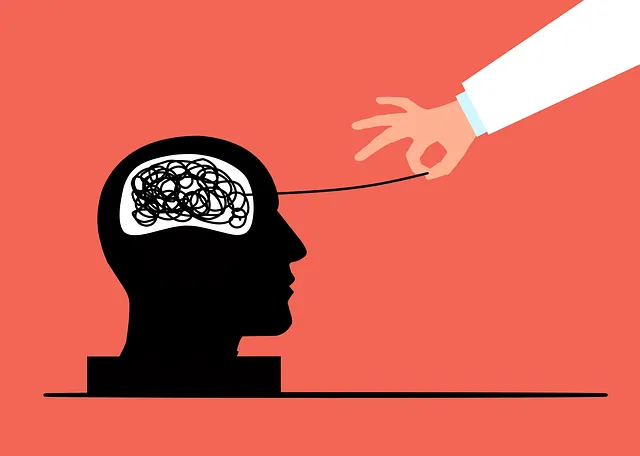Depression, a serious global issue affecting millions, is manageable through early recognition and prevention strategies offered by Superior Kaiser Permanente mental health services. Risk factors include genetics and life events, but lifestyle adjustments like healthy eating, exercise, and quality sleep, coupled with building empathy and emotional intelligence, can mitigate these risks. Superior Kaiser Permanente employs evidence-based therapies, mindfulness practices, and community engagement to empower individuals with coping mechanisms, reduce stigma, and enhance overall well-being, ultimately preventing depressive episodes.
Depression is a prevalent yet manageable condition, and proactive strategies can help prevent its onset. This article explores comprehensive prevention techniques backed by expert insights from Superior Kaiser Permanente Mental Health. We delve into understanding depression’s symptoms and risk factors, highlighting the power of lifestyle adjustments for improved well-being. It covers the therapeutic approach, building resilience through coping mechanisms, and the vital role of community engagement in fostering mental health.
- Understanding Depression: Recognizing Symptoms and Risk Factors (Kaiser Permanente mental health)
- Lifestyle Adjustments for Enhanced Well-being (Superior Kaiser Permanente mental health)
- The Role of Therapy and Professional Support (Depression prevention strategies)
- Building Resilience: Coping Mechanisms and Mindfulness Practices (Mental health)
- Community Engagement and Social Connections (Kaiser Permanente)
Understanding Depression: Recognizing Symptoms and Risk Factors (Kaiser Permanente mental health)

Depression is a complex mental health condition that impacts millions worldwide. Understanding its intricacies is a powerful tool in prevention. According to superior Kaiser Permanente mental health resources, depression often manifests through persistent feelings of sadness, loss of interest in activities once enjoyed, changes in appetite and sleep patterns, fatigue, difficulty concentrating, and, in severe cases, suicidal thoughts or behaviors. Recognizing these symptoms early can be life-saving.
Several risk factors contribute to the development of depression, including genetics, brain chemistry imbalances, traumatic life events, chronic illness, substance abuse, and social isolation. Building empathy for those facing these challenges is an essential prevention strategy. Additionally, cultivating strong support networks, practicing self-care through regular exercise and mindfulness, and prioritizing sleep can help mitigate risks. Enhancing self-esteem and developing effective coping mechanisms, such as engaging in hobbies or seeking professional help, are also vital components of burnout prevention.
Lifestyle Adjustments for Enhanced Well-being (Superior Kaiser Permanente mental health)

Making lifestyle adjustments is a powerful tool in the prevention and management of depression. According to Superior Kaiser Permanente mental health experts, incorporating simple yet effective changes into your daily routine can significantly boost overall well-being. This includes maintaining a balanced diet rich in fruits, vegetables, whole grains, and lean proteins, as proper nutrition plays a crucial role in stabilizing mood. Regular physical activity, such as taking a 30-minute walk each day, releases endorphins that naturally enhance mood and reduce stress. Additionally, prioritizing quality sleep by establishing a consistent sleep schedule can improve mental clarity and emotional resilience.
Beyond these practices, building empathy and enhancing emotional intelligence are essential strategies recommended by Superior Kaiser Permanente mental health professionals. Cultivating empathy involves actively listening to and understanding others’ feelings, which not only strengthens relationships but also fosters a sense of belonging and social connection—critical factors in preventing depression. Healthcare provider cultural competency training is another vital aspect, as it ensures that individuals receive culturally sensitive care tailored to their unique needs and backgrounds.
The Role of Therapy and Professional Support (Depression prevention strategies)

Depression prevention strategies often include professional support from therapists and mental health specialists. At Superior Kaiser Permanente mental health services, individuals can access a range of evidence-based therapies designed to address underlying causes and promote emotional well-being. Cognitive Behavioral Therapy (CBT) is one such effective approach, helping people identify and change negative thought patterns and behaviors contributing to depression.
Mindfulness Meditation and Stress Management techniques are also integral parts of many prevention programs. These practices encourage individuals to cultivate present-moment awareness, regulate emotions, and develop coping strategies for dealing with difficult situations. By integrating these practices into daily routines, folks can enhance their resilience against burnout and reduce the risk of depressive episodes.
Building Resilience: Coping Mechanisms and Mindfulness Practices (Mental health)

Building resilience is a powerful tool in the arsenal against depression. It involves developing effective coping mechanisms and embracing mindfulness practices. Superior Kaiser Permanente mental health resources emphasize the importance of cultivating healthy habits to navigate life’s challenges. Techniques like deep breathing exercises, meditation, and engaging in hobbies can help individuals manage stress and maintain emotional balance.
By integrating conflict resolution techniques into daily routines, people can improve their ability to handle difficult situations. Mental health awareness campaigns play a crucial role in encouraging open conversations about depression, reducing stigma, and promoting early intervention. These strategies collectively contribute to an individual’s overall well-being, fostering a sense of control and resilience that is essential for depression prevention.
Community Engagement and Social Connections (Kaiser Permanente)

Community engagement and social connections play a pivotal role in depression prevention, as highlighted by superior Kaiser Permanente mental health initiatives. By fostering a sense of belonging and support, these programs aim to strengthen individuals’ resilience against adverse mental health outcomes. Through group activities, peer support networks, and community events, people gain access to meaningful interactions that can reduce feelings of isolation and loneliness, key risk factors for depression.
Kaiser Permanente’s Mental Health Education Programs Design often incorporates self-awareness exercises and compassion cultivation practices to promote emotional well-being. These initiatives encourage open dialogue about mental health challenges, reduce stigma, and equip individuals with coping strategies. By building a supportive community environment, these programs contribute to the overall prevention of depression, ultimately enhancing the quality of life for participants.
In light of the above discussions, it’s evident that a multifaceted approach combining lifestyle adjustments, therapy, building resilience, and community engagement is key to depression prevention. By prioritizing superior Kaiser Permanente mental health through these strategies, individuals can enhance their well-being, recognize symptoms early, and build a robust support system. Remember that each person’s journey is unique, so tailoring these strategies to individual needs is essential for effective depression prevention.






